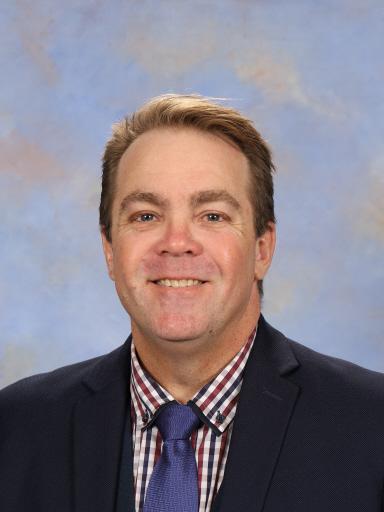PRINCIPAL'S REPORT

Engagement and service
One of the most important factors in student success, if not the most important factor, is student engagement. If students are not engaged in what they are doing both at school and at home, their learning experiences and motivation are compromised. As the most significant adults in the lives of the students, parents and teachers work together to ensure that this goal is achieved.
There is some consensus in the educational and sociological research literature that indicates adolescents engage when they act (with guidance) as their own learning agents, working at their own pace to achieve goals meaningful to them. This means what students believe about themselves as learners is monumentally beneficial and as such it is imperative that we assist in enhancing our students’ self-belief. At home, during sport, in social situations and at school, students must believe they can learn and can overcome and learn from failure. There is nothing wrong with failure however, it is important for us to learn from our mistakes. When we provide structured opportunities for students to work with an appropriate level of independence, enjoy learning relationships with others and feel encouraged to achieve their own objectives, their engagement is substantially increased.
It is important to understand that, even though they might not admit it, parents, teachers and student’s peers are central to quality engagement in all endeavours. As students develop with age and experience, both cognitively and physically, we all need to adapt to their changing expectations regarding autonomy, responsibility, socialisation and independence. As the adults in their lives we need to create experiences for students that are challenging and enriching and extend their abilities. If all learning activities, sporting and social challenges and assignments were easy - they inexorably become ineffective. The Agricultural and Outdoor Education Programs at The Riverina Anglican College are perfect examples of placing children outside their comfort zone and allowing them to be challenged in a safe and caring environment. It is only when students are reflective, evaluative, inquisitive and excited by learning that they are engaged.
At our school we consistently strive to provide an environment and opportunities for all of our students to engage in the learning process. Learning for Life is a popular catch phrase in educational circles, and with good reason. It is at the core of what we are try to do every day. Over the past weeks I have thoroughly enjoyed the opportunities presented to me to interact with students involved in sport, music, exams, presentations, debating and camps. All of these activities are part of the holistic learning journey at The Riverina Anglican College – something to be savoured and experienced.
At the core of the ethos of the college is the importance of cultivating a servant heart and a desire to work within our community to foster a culture of cooperation, understanding and compassion. Dr Martin Luther King Jnr said… “Everybody can be great...because anybody can serve. You don't have to have a college degree to serve. You don't have to make your subject and verb agree to serve. You only need a heart full of grace. A soul generated by love.” The most prominent examples of this so far in 2021 have been the Willsher and Fox House Days. It is obvious from these two events alone that there is a tremendous capacity for giving at our school and a desire to help those in less fortunate circumstances.
Our core business at The Riverina Anglican College is to prepare young people for life in the rapidly changing world God has given them, equipping them to be courageous, constructive, creative and compassionate citizens with the will to serve. With a highly-developed sense of justice and compassion, the students who are taking part in these extraordinary opportunities to serve are doing just this and are the living embodiment of what Dr King encouraged us to do almost half a century ago.
Paul Humble | Principal

